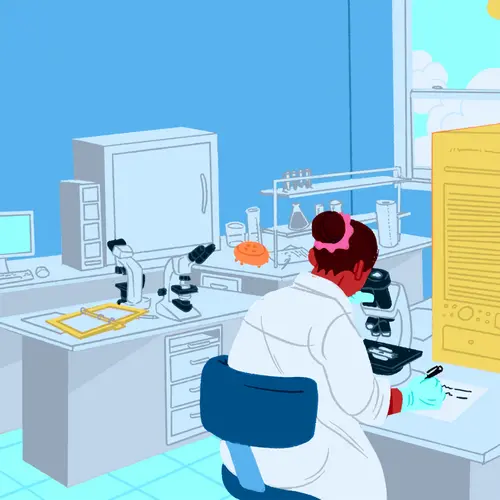Proactive Tips After a Cancer Diagnosis

Hide Video Transcript
Video Transcript
[MUSIC PLAYING]
Getting educated is a big part. When somebody gets a diagnosis, they might not have ever known anything about that. Let's say they get a diagnosis of bladder cancer, they're going to get online and they're going to Google it, right? Stick with recommended sites like the American Cancer Society, the National Cancer Institute, known cancer websites, because they're going to have information that's going to be accurate and helpful.
Getting organized is key. This is a long process, and during that process there's a lot of information that patients are going to be given. So one of the things that is very helpful is to set up a system upfront. If you get a three-ring binder, put some tabs in there and start putting the information that you gather into that organized format, it will help you feel like you are in control. It will give you a resource to then reference back to so that you can refresh your memory of things that you have heard or read in the past and stay with you during the process as an organized piece. [MUSIC PLAYING]
TRACY MCELVEEN
After a cancer diagnosis, you may be overwhelmed. But once the shock passes, don't panic. Most likely, if they've got a diagnosis, this didn't pop up yesterday. So even though there's a tremendous amount of anxiety that everything needs to happen tomorrow and treatment needs to start immediately, I think it's important for patients to remember to pause and let the process unfold in its due time. Getting educated is a big part. When somebody gets a diagnosis, they might not have ever known anything about that. Let's say they get a diagnosis of bladder cancer, they're going to get online and they're going to Google it, right? Stick with recommended sites like the American Cancer Society, the National Cancer Institute, known cancer websites, because they're going to have information that's going to be accurate and helpful.
Getting organized is key. This is a long process, and during that process there's a lot of information that patients are going to be given. So one of the things that is very helpful is to set up a system upfront. If you get a three-ring binder, put some tabs in there and start putting the information that you gather into that organized format, it will help you feel like you are in control. It will give you a resource to then reference back to so that you can refresh your memory of things that you have heard or read in the past and stay with you during the process as an organized piece. [MUSIC PLAYING]
